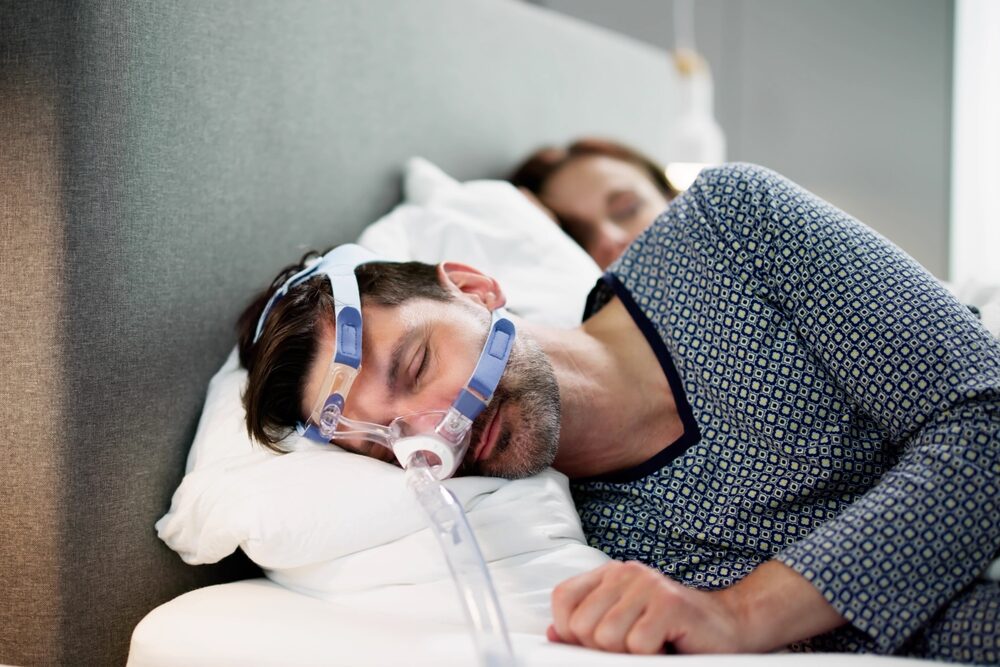
☝️ The most important facts in brief
- Ear, nose and throat medicine (ENT) is a speciality that deals with problems and complaints of the ears, nose, throat and neck.
- An ear, nose and throat specialist diagnoses and treats conditions such as middle ear infections, sinusitis and voice problems.
- Typical symptoms with which patients make an appointment with an ENT specialist are hearing loss, nosebleeds, difficulty swallowing and earache.
- To become an ENT doctor, five years of further training as a specialist is required after studying medicine.
📖 Table of contents
The ear, nose and throat specialist deals with complaints and illnesses in the ear, nose and throat area. Their tasks include the diagnosis and treatment of problems such as sinusitis, hearing loss and swallowing difficulties. Using modern examination methods, ENT specialists offer comprehensive help and care in their ENT practice or in a clinic for ear, nose and throat medicine. Find out more about this exciting profession now!
Are you interested in studying medicine?
We will be happy to advise you free of charge about your options for studying medicine, including advice on studying medicine in another EU country, which is fully recognised in Germany.
What is an ENT doctor?
As the specialist title suggests, the ENT doctor looks after the throat, nose and ears. Ear, nose and throat medicine, also known as otorhinolaryngology, uses modern methods to get to the bottom of symptoms and injuries in these areas.
What does an ear, nose and throat specialist do?
The field of activity of an ear, nose and throat specialist is vast. There are so many diagnostic and therapeutic methods in this speciality that it is not possible to explain all the examinations and treatments in detail in this article. We will therefore limit ourselves to presenting a few typical and very interesting examples of what doctors do.
Diagnostic methods
The following examples give you an overview of some of the most important diagnostic procedures used by an ear, nose and throat specialist.
Otoscopy
The otoscope allows the ENT specialist to look inside the ear canal and at the eardrum. This procedure helps to recognise infections such as otitis media at an early stage.
Audiometry
The ENT specialist tests the patient's hearing ability at different pitches and volumes. This procedure is central to the diagnosis of hearing loss and other hearing problems.
Endoscopy
Endoscopic procedures allow ENT specialists to examine the internal structures of the nose, throat, neck and larynx. Using this technique, specialists can precisely detect tumours or the consequences of injuries, for example.
Stroboscopy
Stroboscopy visualises the vibrations of the vocal cords during speech and other vocalisations. This procedure is particularly useful for finding the cause of speech, voice and articulation disorders.
CT/MRI
Computed tomography and magnetic resonance imaging provide detailed images of the head and neck. This enables ENT specialists to recognise complicated diseases and injuries in this area.
Therapy methods
The ENT specialist also has a wide range of treatment options. The following options are available, among others:
Drug therapy
An ENT doctor prescribes medication such as antibiotics and corticosteroids to treat infections and inflammations in the mouth, throat, nose or ear. This therapy alleviates symptoms and combats pathogens.
Operations
The profession of ENT specialist also includes surgical procedures. These include the removal of polyps from the nose, tonsillectomies and the adjustment of the nasal septum. Tumour operations in the oral cavity, throat and other areas are also part of the specialist's field of activity.
Speech therapy
Speech therapy supports patients with speech, language and swallowing disorders. An ear, nose and throat specialist often works with speech therapists to create therapy plans and improve communication skills.
Laser therapy
Conditions such as snoring, nasal polyps and vocal cord changes can be treated using laser therapy. The ENT specialist uses precise laser beams to remove tissue in a minimally invasive way. In many cases, this can eliminate or significantly reduce swallowing and breathing disorders.
Sleep apnoea masks
The so-called CPAP devices help patients with obstructive sleep apnoea. The ENT specialist customises these masks to keep the airways open and improve the quality of sleep.

Studying abroad still has advantages
Despite the higher tuition fees, there are good reasons why a large number of students decide year after year to take a Studying medicine abroad to complete.
While study places at German universities are allocated centrally via the Foundation for University Admissions and are subject to a high NC universities in other countries usually decide for themselves which applicants will receive a Obtain a study place. Here, everyone has the opportunity to impress with their motivation and qualifications, regardless of their A-levels.
The universities abroad that we recommend have everything you need for a good medical education. Students will find well-equipped laboratories, excellent supervision and, thanks to internationally oriented degree programmes, can study in English or even German.
Financing your studies abroad - these are the options
Studying medicine abroad can cost a lot. Fortunately, however, there are a number of financing options, so that this alternative to studying in Germany is also possible if you don't have rich parents or savings. We will now briefly introduce you to some solutions that may be the answer to the question of how to finance your studies.
BAföG
Even if you would not receive BAföG to study medicine in Germany, in many cases it is possible to receive it due to the higher costs. This can help you to finance your tuition fees and other expenses. It is important that you submit an application in good time and provide all of your details correctly and in full.
Reverse intergenerational contract
The reverse intergenerational contract is an innovative financing option for your medical studies. An education fund pays your tuition fees and living costs. In return, you pay a fixed percentage of your income into the fund for a fixed period after graduation. This option is particularly attractive for human medicine and dentistry degree programmes and offers financial security.
Scholarship
A scholarship is an excellent solution for financing your medical studies. Various organisations and foundations offer financial support. Prerequisites are often good grades and social commitment. It is worth finding out about the various options and making an enquiry with each scholarship project for which you fulfil the requirements.
Student loan
A student loan can help your Financing medical studiesif other means are not sufficient. You can usually withdraw a fixed maximum monthly amount. This saves you a lot of stress and you can concentrate on your studies at university. The interest rates are often comparatively low and repayment does not begin until after your studies.
Are the costs associated with studying abroad worth it?
While tuition fees in all German federal states amount to a maximum of a few hundred euros, abroad they are usually a few thousand.
If you have not been offered a place at university in Germany due to the NC, it is still worth considering studying at a university abroad. This is particularly worthwhile because you will earn a good salary as a doctor. By taking the opportunity to study directly, you can work in the profession earlier and earn good money. This will enable you to pay back a student loan, for example.
Free information material
Studying medicine abroad 🎉
Order your information pack now, find out more about studying medicine abroad and get started as a medical student!





